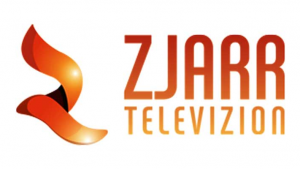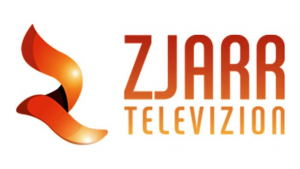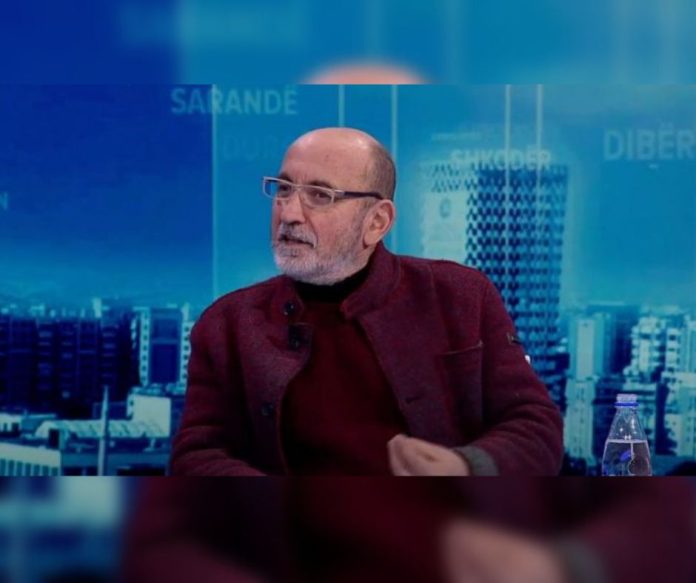Nga Fatos Lubonja
Partia Demokratike italiane reagoi fort ndaj marrëveshjes Meloni-Rama për sjelljen në Shqipëri të emigrantëve që kapen në ujrat e Mesdheut; dhe jo vetëm ndaj Melonit, por edhe ndaj partisë socialiste Shqiptare. Shkoi deri atje sa deklaroi se do të propozonte përjashtimin e saj nga familja socialiste evropiane pasi Edi Rama dhe të tijtë nuk përfaqësojnë vlerat e së majtës evropiane.
Por a u revoltua kaq shumë e majta italiane pasi konstatoi, e befasuar, se çfarë “vlerash” mbron në të vërtetë partia socialiste shqiptare apo reagoi në funksion të luftës së brendshme për pushtet? Ngrihet kjo pyetje pasi Edi Rama dhe partia e tij kanë dhjetë vjet në pushtet e duket e pamundur që simotra e një vendi partner kaq afër Shqipërisë të mos jetë në dijeni se çfarë ndodh në Shqipërinë e udhëhequr nga socialistët shqiptarë.
Si ka mundësi që e majta italianë-përfshirë edhe gazetarët afër saj-të mos e dinë se gjatë dhjetë vjetëve të Ramës në pushtet, që përkojnë me shumicën e kohës kur ka qenë në pushtet edhe PD italiane, nga Shqipëria 2.8 milionë banorësh kanë ikur minimumi 700 000 banorë?
Disa pyetje të tjera
Si ka mundësi që askush në Itali të mos ketë dëgjuar paralajmërimet e prokurorit më të famshëm italian Nicola Grateri për lidhjet e mafies shqiptare me politikën në Shqipëri; se në përgjimet e ekipit të tij ndaj eksponentëve të Ndraghetës këta dëgjohen të thonë: Shqipëria është sot si Calabria në vitet ’60 prandaj duhet të shkojmë atje për të investuar.
Si ka mundësi që gazeta të rëndësishme italiane, që kritikojnë sot Ramën për marrëveshjen me Melonin, deri dje kanë reklamuar transformimet modernizuese të kryeqytetit Shqiptar pa kthyer asnjëherë kokën për të parë se, në bashkëpunim me studio të shquara Italiane, ky ka shkatërruar qendrën historike për të ngritur grataçiela në të cilat mafia shqiptare dhe Ndrageta riciklojnë paratë e pista në dritë të diellit?
Si ka mundësi që italianët (në këtë rast veçanërisht e majta) nuk paskan lexuar apo dëgjuar se Rama ngulmonte tek kryeministri i tyre i majtë Mateo Renzi, me të cilin mbante marrëdhënie po kaq të ngrohta sa ç’ka sot me të djathtën Meloni, që t’i shtynte biznesmenët italianë të investonin në Shqipëri, ku “nuk ka sindikata që t’u çajnë trapin”.
Dhe, më në përgjithësi, duket e pamundur që politikanët dhe gazetarët italianë të mos dinë ende se në Shqipëri, ashtu si dhe në Serbi e gjetkë, nuk ka kuptim të flitet për parti të majta dhe të djathta, por për parti-shtete që sa më shumë rrinë në pushtet aq më shumë fitojnë vota në sajë të kapjes së të gjitha pushteteve përfshirë edhe atë të krimit të organizuar?
A janë të gjithë “naivë”?
Duke ndjekur reagimet e Athinës pas arrestimit dy ditë para zgjedhjeve lokale të kandidatit të minoritetit grek Beleri, nuk mund të mos sjellësh nëpër mend pyetje të ngjashme për politikanët dhe gazetarët grekë: Si ka mundësi që vetëm pas aktit brutal ndaj kandidatit të minoritetit grek Greqia po zbulon se në Shqipëri ka një regjim autoritar, që bashkëpunon me krimin e organizuar për të grabitur qytetarët shqiptarë dhe ku shkelen hapur, me arrogancë, të drejtat e njeriut?
Këtyre pyetjeve tenton t’u përgjigjet indirekt gazeta greke Kathimerini në një shkrim të 15 dhjetorit 2023. Them indirekt pasi shkrimi nuk i prek marrëdhëniet e ngrohta që kanë pasur kryeministrat grekë me Ramën përpara kësaj ngjarjeje, por merret me deklaratën e Berlinit ndaj vetos së Athinës kundër hapjes së negociatave të Shqipërisë me BE për shkak të rastit Beleri. Sipas saj Uashingtoni, Londra dhe Berlini nuk po e kuptojnë dot se drejtësia e re shqiptare, që ata e promovojnë si “shembulli më i suksesshëm i reformës në Ballkanin Perëndimor”, po “bëhet një instrument politik” në duart e Ramës. Sipas Kathimerinit kjo ndodh sepse, për shkak të “naivitetit” të tyre, ata kanë investuar miliona euro e dollarë në këtë reformë. Gazeta nuk thotë, megjithatë, se edhe Greqia ka qenë deri dje në këto pozita naiviteti.
Në fakt argumenti se perëndimorët, të udhëhequr nga SHBA, kanë qëllime të mira, por nuk e kuptojnë dot realitetin e këtyre vendeve, qarkullon edhe brenda këtyre vendeve. Në Shqipëri opozita, edhe kur denoncon përdorimin e reformës nga Rama, apo operacionet e tij propagandistike, lobimet, por edhe korruptimet në Itali, Greqi, UK, SHBA e gjetkë, tregohet gjithnjë e kujdesshme t’i trajtojë këta partnerë si të keqinformuar apo naivë, por kurrsesi si bashkëpunëtorë me të keqen.
Dyfytyrësia prapa vitrinës së “vlerave”
Në fakt histori investimesh perëndimore që kanë dështuar apo kanë rënë në duar të gabuara ka shumë-Afganistani është një nga të fundit-por është naivitet të besosh se këto bëhen nga naiviteteti. Aq më tepër po të kesh parasysh se, në rastin shqiptar, për dështimin e reformës në Drejtësi është folur në qarqet evropiane që para disa vjetësh kur emisarët e BE-së këshilluan si Kosovën edhe Maqedoninë të mos aplikonin reformën që u bë në Shqipëri pasi ajo ka hapur më shumë se ç’ka zgjidhur probleme.
Pa e mohuar se në këto histori luan rol edhe naiviteti manipulimi, madje edhe korrupsioni-ku spikat korruptimi nga Rama i zyrtarit të lartë të FBI-së Mac Gonical në funksion të hapjes së një procesi në SHBA kundër liderit të opozitës-mendoj se gjithsesi të vërtetës i afrohemi shumë më tepër nëse reshtim së trajtuari marrëdhëniet e Perëndimit me vende si Shqipëria nëpërmjet një qasjeje orientaliste që na bën të shohim perëndimorë të mirë, racionalë e të drejtë që rreken të emancipojë të liqtë, irracionalët, të padrejtët hajdutë lindorë. Këta 30 vjet kanë treguar qartë edhe në vendet e ish Lindjes, që kanë besuar më fort se të tjerët në angazhimin e sinqertë të Perëndimit në ndërtimin e demokracisë dhe shtetit të së drejtës në këta vende, se prapa fasadës së këtij angazhimi kanë qëndruar interesa të forta ekonomike dhe gjeopolitike, të deklaruara dhe të padeklaruara, që u kanë imponuar politikave perëndimore aplikimin e gjuhës së dyfishtë dhe standarteve të dyfishta.
“Modeli” i devijimit të refugjatëve
Një shembull i freskët i këtyre politikave është “modeli invovativ” i devijimit në kampe shqiptare të emigrantëve që synojnë vendet e BE. Në Itali, ky model në një anë reklamohet nga Meloni si një rrugë për ta sjellë Shqipërinë më afër familjes evropiane, dhe, më anë tjetër, shpjegohet nga njerëzit e saj nëpër media si një strategji deterrence, d.m.th. trembjeje të emigrantëve me Shqipërinë. Vlefshmërinë e këtij modeli e përforcoi edhe simotra e PD italiane, partia social demokrate gjermane me kancelarin Scholtz që nxitoi të deklarojë se gjermanët e shohin me shumë interes modelin Rama-Meloni. Janë po ata gjermanë për të cilët Katherimini thotë se, pas luftës në Ukrainë, janë transferuar fuqishëm në kampin e atyre që dëshirojnë një integrim të shpejtë dhe të menjëhershëm të Shqipërisë në BE, ndërkohë që deri dje kërkonin të shtonin kushte të tjera sepse Shqipëria ishte larg standarteve. Ironia është se sipas gazetës greke, deri dje-d.m.th para rastit Beleri,-ishte Greqia që përpiqej t’u shpjegonte nëpërmjet dy minstrave të vet të jashtëm gjermanëve, francezëve dhe holandezëve se pse “është thelbësore të avancojë procesi i anëtarësimit në BE për Shqipërinë dhe Maqedoninë e Veriut”.
Si për të mbushur kupën e përdorimit të gjuhës dhe standarteve të dyfishta nuk vonoi edhe reagimi perëndimor ndaj manipulimit të zgjedhjeve në Serbi nga autokrati Aleksandër Vuçiç, deri dje i përkëdheluri i tyre. Është e qartë se heshtja e Perëndimit ndaj ankimeve të opozitës serbe, që ka lënë prej vitesh parlamentin në shenjë proteste dhe që sot po e akuzon Perëndimin për mbështetje të autoritarizmit në Serbi, nuk u thye për shkak se atje nuk ka zgjedhje të lira, por për të shantazhuar Vuçiçin që nuk po distancohet nga Rusia.
Perëndimorëve duhet t’u vijë turp
Ndaj idesë së të majtës italiane për përjashtimin nga familja socialiste Rama reagoi duke thënë se nëse në Itali marrëveshjen e kundërshton e majta në Shqipëri e kundërshton e djathta çka tregon se ndoshta ajo është thjesht e drejtë. Pas deklaratës së social-demokratit Scholtz ai s’pati më nevojë ta diskutojë këtë temë, por nxitoi të shkojë në Gjermani të marrë pjesë në mbledhjen e grupit parlamentar të partisë së djathtë bavareze CSU, ku kryeministri i landit, kryetari i kësaj partie, inkurajoi aplikimin e modelit shqiptaro-italian për refugjatët.
Në fakt ndryshe nga ç’thotë Edi Rama kjo marrëveshje do të duhej të konsiderohej e padrejtë sipas vlerave të së majtës dhe të së djathtës evropiane pasi është në shkelje të të drejtave të njeriut. Jo vetëm, por si të majtët dhe të djathtët evropianë do të duhej tu vinte turp që një çështje si ajo e emigrantëve ta zgjidhin në një vend të vafër si Shqipëria apo ta përdorin Shqipërinë në funksion deterrence. Por duket qartazi se ata do të vazhdojnë të përdorin gjuhën e dyfishtë dhe standardet e dyfishta duke propaganduar progresin e vendeve si Shqipëria në arritjet e standardeve demokratike dhe duke mbështetur, në të njëjtën kohë, autokratët e tyre si rrugën më të lehtë për të zgjidhur problemet e veta.
Dikush mund të thotë se kjo histori nuk është e re; se karta e të drejtave e njeriut është përdorur gjithmonë nga Perëndimi si karta Xholi në lojrat e tij gjeopolitike. Ndoshta, por jo në këto nivele. Që nga fillimi i epokës së pas Luftës së Dytë Botërore Perëndimi nuk ka njohur kurrë një krizë të tillë kredibiliteti dhe legjitimiteti.
*Botuar në gazetën greke “Dromos”, 3 shkurt 2024. Titulli origjinal: Shqipëria pasqyrë e krizës së kredibilitetit të Perëndimit






